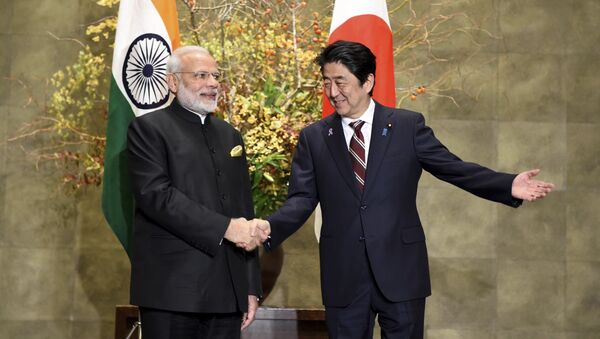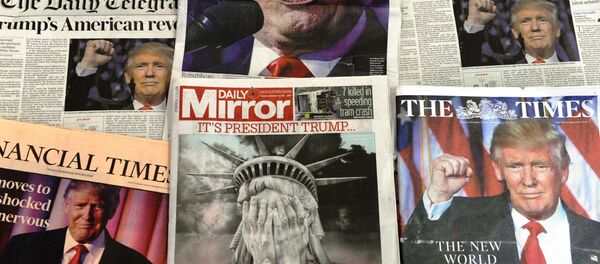NEW DELHI (Sputnik) — A few months after Indian Prime Minister Narendra Modi visited Japan, there is a chill over a trade dispute.
Japan had recently gone the extra mile by signing a civil nuclear deal with India which refuses to sign the Nuclear Non-Proliferation Treaty (NPT). But that has not stopped it from threatening to drag India to the World Trade Organization (WTO) over import curbs on steel. As a result, exports by Japanese steel keiretsus to India have nearly halved over the past year.
Even Taiwan is feeling the heat of Indian restrictions and reportedly may join Japan in seeking a non-restrictive policy. This insistence on a WTO ruling can potentially trigger a major row among the countries.
"Buy American, Hire American" was Trump's central theme at his inaugural speech and the next four years could see US taking protectionist measures which could hurt export-reliant nations like China and Japan.
India in recent months has pushed for measures to curb cheap imports of steel products to protect its domestic steel industry. A 20 percent duty on hot-rolled flat steel products was imposed in September 2015, further backed by a minimum import price last February.
Sources in India's Trade and Commerce Ministry argue that these are temporary measures and the country is ready for talks with Japan. It is also preparing a response in this regard as per the WTO guidelines.
In a recent interview to Nikkei Asian Review, India's steel secretary Aruna Sharma was quoted as saying, "the [minimum import price] was initially imposed on 173 steel items, which came down to 66 and now it is down to 19."
Instead of duties and minimum import price, which affect all, India is shifting to anti-dumping duties, already is in place for hot-rolled coil and wire rods, as per Sharma. She also claimed the government has sufficient evidence of Japan and other countries of dumping cheap steel. While Sharma did not specify who the other countries are, Ministry sources hinted at China and Taiwan as well. Japan's steel exports to India have declined sharply since 2015. India is now at 11th on the list of Japanese overseas markets, down from 6th largest in 2015.
India has started imposing anti-dumping duty of $ 474-$ 557 a ton on hot-rolled flat products of alloy and non-alloy steel imported from China, Japan, South Korea, Russia, Brazil and Indonesia in August. These six nations account for almost 90 percent of India's steel imports.
Never miss a story again — sign up to our Telegram channel and we'll keep you up to speed!





